
Who’s eligible?
Liverpool & Sefton OPTIONS Spring 2024
care
independent living
A guide to
and
hospital
NHS continuing healthcare Leaving
Healthcare services
the right one
What’s next?
Choosing
CARE tips 10
SOCIAL
Parkhaven Trust is a registered charity based in Maghull providing a wide range of services to support older people and people with dementia.

Our Services
The Beeches – A state of the art residential home that offers care for older people with dementia
James Page Nursing Home – Residential nursing care for older people
Parkhaven Court – Extra care scheme for people with dementia, supported living in self contained apartments
The Willow Centre – Day service for people with dementia
The White House – Care and support in tenanted accommodation for people living with a learning disability
We aim to provide the highest possible quality of care with a person-centred approach.
Each service provides varied menus, which are nutritionally balanced and offer choice. We have a dedicated activities coordinator who organises a meaningful programme of activities.
We are proud to be leaders in the field of dementia care and use our experience and expertise to enrich the lives of our service users.
“The dedication of our staff is what sets us apart…”
Are you interested in working for us? We have high levels of staff satisfaction, great rates of pay, benefits and flexible hours. For more information on our latest vacancies please visit our website www.parkhaven.org.uk




52-58 Rock Lane West, Rock Ferry, Birkenhead, CH42 4PA
Summer Fields Care Home offers long term care, respite and day care. The home is a specialist residential dementia care home located in Rock Ferry near Birkenhead.
Summer Fields has lots to offer, including:
• Fully trained experienced staff
• Excellent activities programme
• All rooms are ensuite
• Landscaped gardens
• Day trips in our minibus, activities & events Please










visit our website, or call the home for more details on: 0151 645 1573
www.yourhealthgroup.co.uk
WE HAVE AVAILABILITY




The Friends and Family Test 14 Are you ready to go home after hospital? Age Concern Liverpool and Sefton are here to help ............................................................................................................... 15 Contents The right place for your care ............................................................................................. 6-7 Leaving hospital ......................................................................................................................7 Your hospital team..................................................................................................................8 The assessment process 8 Therapies 8 Dementia Practitioner ............................................................................................................8 Intermediate Care ...................................................................................................................8 Intermediate Care – Aiming to get you home ............................................................... 9-10 Intermediate Care at Home: Liverpool Out of Hospitals Service 10 What is the Liverpool Home First? ......................................................................................12 Our commitment to you .......................................................................................................12 When you leave hospital ......................................................................................................11 Useful contacts 13 3 NHS Trust The Royal Liverpool and Broadgreen University Hospitals This guide is intended to help you, your carer and your relatives understand how your local health services can help you after discharge from hospital. Also information to help you to live independently or access support and care services in your area. Welcome and introduction Sefton Social care and wellbeing 16-17 OCTAGON DESIGN & MARKETING LTD The Care Quality Commission Social Care top tips 11 To view this guide online as an interactive ebook visit: www.octagon.org.uk/options/liverpool/spring2024 Read online Options Liverpool & Sefton is published by Octagon Design & Marketing Ltd with editorial contributions from The Royal Liverpool and Broadgreen University Hospitals NHS Trust, the CQC, Age Concern Liverpool & Sefton, Sefton Council and NHS Choices. The editorial contributors and publisher have not vetted the advertisers in this publication and accepts no liability for work done or goods supplied by any advertiser. Nor does the editorial contributors and publisher endorse any of the products or services. Every possible care has been taken to ensure that the information given in this publication is accurate. Whilst the publisher would be grateful to learn of any errors, it cannot accept any liability over and above the cost of the advertisement for loss there by caused. No reproduction by any method whatsoever of any part of this publication is permitted without prior written consent of the copyright owners. Octagon Design & Marketing Ltd. ©2024. Rossington Hall, Great North Road, Doncaster, South Yorkshire, DN11 0HR. Telephone: 01302 714528 NHS continuing healthcare 18-21 Age Concern Liverpool and Sefton - please support us ...................................................22

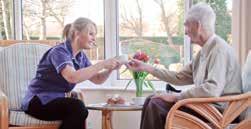

“Committed to Caring for the Elderly”
PEACEHAVEN HOUSE
Peacehaven House is set in a quiet suburb of Southport. Conveniently located to the local shops in Churchtown and seaside resort of Southport, Peacehaven House was established in 1949 as a Registered Charity to provide care for the elderly in Southport. Over the years the building and gardens have been sympathetically extended and refurbished, we now have 54 bedrooms, multiple lounges, two dining rooms, a conservatory and beautiful gardens with paved walkways, a summer house and a majestic rockery/ waterfall feature.
We are a ‘not for profit’ charity led organisation, this registered charity was formed on the 5th December 1949. Being a charity led organisation has many advantages for the residents at Peacehaven as we are able to re-invest any surplus generated into improving facilities or extras and we are not beholden to shareholders. We run the home for the sole purpose of the residents and the residents truly come first at Peacehaven.
Peacehaven has ample parking for visitors right by the front door, with wheelchair access to the main building. Rooms are located mainly on the ground floor, while first floor rooms can be accessed by the stairs or lift. There are 54 bedrooms, many of which have en-suite toilet facilities and enjoy stunning views of the lovely gardens. Rooms are equipped with beds, furniture, shaving points, electrical sockets, mirror and wash basins and residents are welcome to bring along their own furniture.

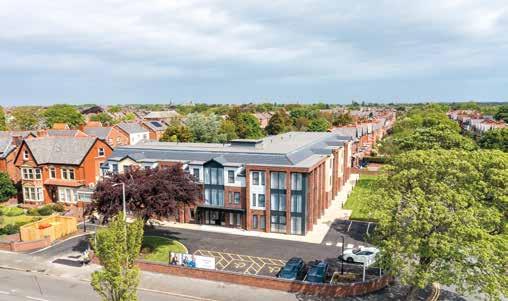


Ivy Gate Lodge is located in the Victorian seaside town of Southport in the borough of Sefton, where our welcoming team take pride in delivering compassionate, professional and friendly care to our residents.

101 ROE LANE, SOUTHPORT, PR9 7PD • 01704 227030 • www.peacehavenhouse.com ★ ★ ★ ★ ★ I feel at ease knowing my dad is being cared for at Ivy Gate Lodge. All the staff are very kind to him, and he seems very happy there; his room is very nice, and he loves walking in the garden whenever he can. R B (Son of Resident) Review from www.carehome.co.uk ★ ★ ★ ★ ★

St. Joseph’s Home is passionate about supporting people with profound and multiple learning disabilities who also have complex health care needs.
We offer fantastic facilities in a warm and friendly environment with beautiful, secure grounds to walk around. St, Joseph’s Home has been tastefully decorated throughout and individuals are encouraged and supported to personalise their bedrooms. There are three sensory rooms which are furnished with the latest multi-sensory equipment. We provide various opportunities for socialising within the home. For instance, we offer regular social clubs for various activities, music therapy, a sensory garden, reminiscence sessions and much more. People are supported in accessing their local and wider community by going to shows and concerts in Liverpool City Centre, as well as our local village for shopping, eating and drinking with their family and friends.
A central principle of the support given by this service is that each person lives a life that makes sense to them and that they are supported in a caring, creative and proactive environment. When we get it right we call this “Making it Happen”. We aim to achieve this by using a holistic approach. We use person centred tools, combined with an approach known as intensive interaction, to facilitate communication for everyone we support.
We offer respite service for adults with learning disabilities. Please contact Service Manager Karen Howard for more information.
Tel: 01704 872132
St Joseph’s Home, Blundell Avenue, Freshfield, Formby, Liverpool, L37 1PH




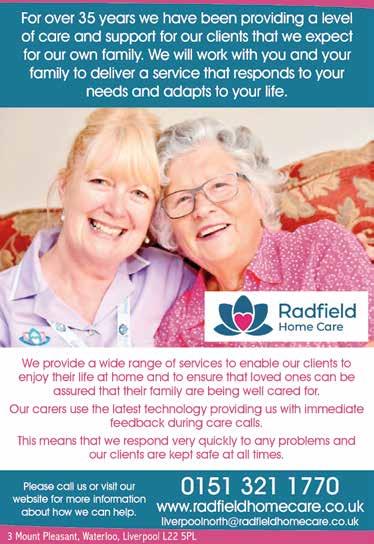
Regain Your Independence with Affordable Stairlifts Why choose us? Call us now on: www.affordablestairlifts.co.uk Specialist in reconditioned stairlifts Over 150 stairlifts in stock One year warranty Quick fast-track installation Reconditioned Stairlift from £1200 “The stairlift was fitted really quickly & we were very happy with the end result.” STRAIGHT CURVED RECONDITIONED GET A FREE NO OBLIGATION QUOTE TODAY office@affordablestairlifts.co.uk 0800 208 1305
The Royal Liverpool and Broadgreen University Hospitals

The right place for your care
Your local hospital in partnership with other hospitals in the region, and your local authorities recognise and support each patient to receive the right treatment, at the right place and by the right professional.
An acute hospital provides consultant led health services within the National Health Service. Acute care is for patients who require emergency, medical or surgical services within a hospital environment. The Royal Liverpool and Broadgreen Hospitals provide care for patients who require this level of care.
Hospitals are the right place to be when you are in need of specific medical or surgical treatment. However, when your treatment has been completed, it is important that your stay is not delayed for the following reasons:
• Beds are needed for people who are very unwell, and who may be waiting in the Accident and Emergency department for a bed to become available.
• People awaiting surgery, both urgent and nonurgent, may have their operations cancelled if a bed is unavailable.
• Make arrangements for equipment or services which need to be in place when you are medically ready to leave.
• Make sure that your carer is given any information, help or advice that is needed to aid your recovery.
All staff will work with you and your carer or relatives, as a team, in order to discuss your discharge with you.
We need to discuss any concerns you have at the earliest opportunity, e.g. your safety at home, managing your personal care or domestic arrangements, your ability to move around and any equipment you may need.
You will be given an expected date for discharge based on when it is expected that your treatment will be completed. It is important that everyone involved is aware of this date so that we can all work towards it, and so that the necessary arrangements can be made.
All staff will work with you and your carer or relatives, as a team, in order to discuss your discharge with you.
• There is a risk of acquiring infections in hospital, so leaving at the earliest opportunity means this is less likely.
• Some people find it harder to return home the longer they stay in hospital.
It is good practice to start planning for your discharge as soon as you come into hospital or even before you arrive. This means that we can begin to:
• Assess what your needs are likely to be when you are ready to leave.
• Involve relevant staff who can help in meeting those needs (e.g. social worker, occupational therapist, physiotherapist, district nurse).
These may include:
• Transport home. Patients are normally expected to arrange their own transport.
• Suitable clothing and footwear if you are not already using them in hospital.
• Access to a key to your property.
• Adequate basic food stocks.
• Adequate heating in your home.
• Adequate support for your carer or family members.
We aim for patients to be discharged before 10am but
Editorial content supplied by: The Royal Liverpool and Broadgreen University Hospitals NHS Trust
NHS Trust
6
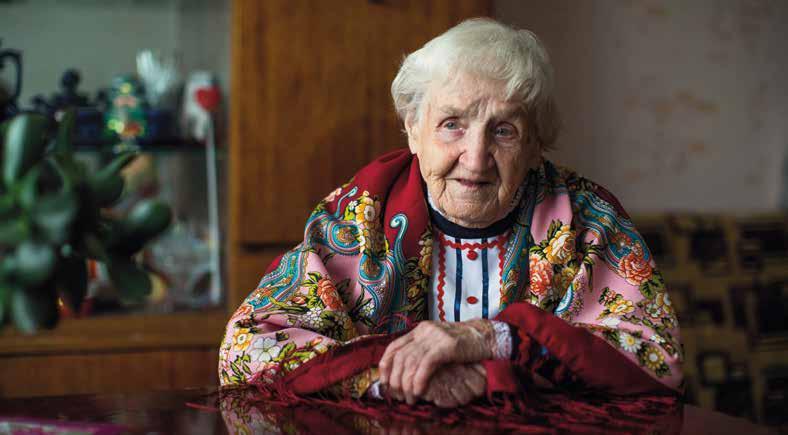
if this is not possible, it is likely that you will move to the Hospitality suite which enables us to prepare the bed for the next patient.
The Hospitality suite is a comfortable and safe place to wait for your transport.
Relatives or carers coming to collect you can meet you in the Lounge or a nurse can escort you to the main reception area.
Finally, we understand that any hospital stay can be stressful and we need to support you and your carer during your time here. You can also help us by moving from hospital when you no longer need our services. We will discuss with you the sort of help you and your carer may need when you return home, to make the transition as easy as possible.
Your Hospital Case Manager is the member of the team who will meet some of you on the ward and, along with the ward staff will begin planning your discharge from hospital.
Leaving hospital
You will be transferred from hospital when your consultant led team decide that you are clinically ready to leave hospital and that you no longer require an acute hospital bed.
For the majority of patients, you will go home from hospital with no additional support required. In some cases you may require some extra support to regain your independence. Your hospital team will help you, your family and carers to access these services if you need them.
Your safe and timely transfer from hospital will also allow new patients who need acute hospital treatment to be admitted without delay.
We fully support your transfer out of hospital for the following reasons:
1. To support you to regain your independence
The Hospitality suite is a comfortable and safe place to wait for your transport.
For most patients, being discharged from hospital to their home is straightforward. Some may need information and advice or may need the support of social services.
Some people have ongoing health and social care needs which require a more detailed assessment. Staff from health and social care will work together to plan and deliver services to support such people after discharge.
This guide explains some of these processes and explains the role of the hospital and Social Care team in the hospital discharge process.
2. Some people find it harder to return home the longer they stay in hospital
3. Acute beds are needed for people who are very unwell, and delays in transfer may result in patients waiting in the Emergency department for a bed to become available.
4. Although we work hard to ensure the highest standards of care there is a risk of acquiring infections in hospital. Leaving hospital as soon as you are medically fit means this is less likely and reduces the risk of any complication.
Editorial content supplied by: The Royal Liverpool and Broadgreen University Hospitals NHS Trust
7
The Royal Liverpool and Broadgreen University Hospitals

Your Hospital Team
A member of the Multi – disciplinary team including your Hospital Case Manager, Consultant team, Matron and ward nurses, Occupational Therapists, Physiotherapists and Social Workers will begin to process your transfer from hospital as soon as you are admitted. This team of clinical experts will explain their key roles to you if they are involved in your hospital care.
The assessment process
Your assessment begins as you are admitted to the ward area and is a way of working out what your needs are and which ones might be putting you at risk.
The assessment process will start with discussions with your Hospital Case Manager, with you and your family / carers. This process of information gathering and clarification of the situation will indicate which members of the multi disciplinary team need to be involved in your assessment. Your Hospital Case Manager will work alongside you to:
• Identify your needs
During your hospital stay we have a dementia practitioner who is available to provide support for patient’s relatives and carers.
• Establish which members of the Multi disciplinary team may need to be involved in your care and assessment
• Provide you with information about services that could support you as you are discharged from hospital
Therapies
You may be referred to a therapist to assist in planning for your discharge from hospital.
This could be someone from a number of different professions; a dietician, occupational therapist , physiotherapist or a speech and language therapist. They will discuss with you and assess what you are able to do; and what you might need more help with. They will then discuss with you what treatment,
help or support is available to improve your independence. The therapists will discuss with the other members of the hospital team their findings and together with you and your family make a plan for your discharge from hospital.
Dementia practitioner
During your hospital stay we have a dementia practitioner who is available to provide support for patient’s relatives and carers.
Dementia patients will receive a ‘This Is Me’ document in order to deliver specific care needs along with the opportunity to take part in bedside activities. Every dementia patient admitted to the hospitals or their carers will also receive information as to relevant advice in order to support them following their hospital stay.
Shaun Lever – Dementia Practitioner, Royal Liverpool and Broadgreen University Hospitals 0151 7062000 bleep 5111; 0151 7064727
Intermediate Care
Here in Liverpool, intermediate care can support people as they are discharged from the acute hospital who are not quite ready, and if they meet the criteria, to return home.
This period of intermediate care can provide rehabilitation from therapy staff or a period of reablement prior to returning home. Your hospital
Editorial content supplied by: The Royal Liverpool and Broadgreen University Hospitals NHS Trust
Trust
NHS
8

team will work with you to assess your level of need and which intermediate care service which would suit your needs should you require it.
All patients who no longer need acute care but cannot return home and do not require specialist care are eligible for intermediate care if they meet the following criteria:
• Over the age of 18
• Resident of Liverpool or
• Registered with a Liverpool GP
Intermediate care is provided under Health and Social Care joint Commissioning arrangements and is free of charge whilst you are on the intermediate care pathway.
your multi disciplinary team assessment. First route out of hospital should always be your own home. If this is not possible, then the Intermediate Care aims to get you home and to eliminate dependency on long term support.
Liverpool City Council provides a model of health and social care support through community bed based centres. The model creates a circle of health and social care support for adults.
The Model of care:
Each facility supports intensive short-term community bed based services under the umbrella of re-ablement services.
Re-ablement services help to ensure people receive the right level of support at the right time.
The aim is to help you to relearn daily living skills so you do not need long-term support or go back into hospital.
People may be eligible for intermediate care following an episode of acute care for a further short period of recovery and or reablement. This can benefit patients and enables a more accurate assessment of your ongoing care needs prior to returning home or before long term care is considered.
Aiming to get you home
The aim is to help you to relearn daily living skills so you do not need long-term support or go back into hospital.
You need to know what you want to achieve and how this will be done in hospital to establish your reasons for going into Intermediate Care through
We aim to support patients as they are discharged from hospital to reduce the length of time you stay in hospital and can offer a more realistic assessment of your future support needs.
The Multi-disciplinary team consists of temporary registered ICRAS GP, Advanced Clinical Practitioners, Nurses, Social Worker, Therapists, General Practitioner, Access coordinator (social care) and appropriate attendees related to your care programme.
Sedgemoor (30 beds)
41 Sedgemoor Road, Norris Green, Liverpool L11 3BR.
Tel: 0151 256 1810
Editorial content supplied by: The Royal Liverpool and Broadgreen University Hospitals NHS Trust
9
During your stay, you may move from one part of our service to another depending upon your assessed needs.
• Provides a service to support hospital discharges, admissions and respite specialising in care and support for people with dementia. A new purpose built integral day facility has been attached to the main building and is fully operational. The new build provides carer support, drop-in facilities, café, day support, community outreach work, advocacy, crisis intervention, health and well being advice and support.
Townsend (25 beds)
106 Townsend Lane, Liverpool L6 0AY
Tel: 0151 263 2888
• Provides a service to support hospital discharges and admissions for people who have had a stroke. Service delivery is supported by the acute trust through Physiotherapist, Occupational Therapists, Speech and Language specialists and a range of social and health support services for individuals and their carers. An integral day facility has been commissioned and this will provide a unique opportunity to support people who have poor or limited mobility, are prone to falls.
Granby (30 beds)
50 Selbourne Street, Liverpool L8 1YQ
Tel: 0151 233 8631
• Is a specialist intermediate care unit, designed specifically to help you regain mobility and confidence, in order to live independently again. Once admitted to Granby, you will be assessed by a qualified team of a Physiotherapist, Occupational Therapist and Social Worker, who will develop an individual therapy programme specifically to meet your needs. This may involve staff working with you on a daily basis to complete exercises to improve your mobility and to ensure that all support you may need is in place.
Intermediate Care bed based services provide assessment, care and treatment for you and discuss with you and your family or carer what care and support you need. During your stay, you may move from one part of our service to another depending upon your assessed needs. This may include transfer to a stepdown bed in a care home, there is no charge unless family can support until POC can be arranged. During your admission you will be assessed by our therapy team who will discuss any treatment plans,
The Royal Liverpool and Broadgreen University Hospitals

goals and frequency of interventions with you. Therapy treatment may be delivered on the ward or in the gym and will consist of chair based exercises, walking practice and functional activities, treatments will be carried out by a member of the multi disciplinary team where it is deemed appropriate to do so. It may be necessary to carry out a home assessment prior to your discharge and if so we will ask you to provide access to your home and ensure that you have appropriate outdoor clothing for the assessment.
If the Multi disciplinary team deems that you are medically fit for discharge but you are not ready for discharge home, you may move to another part of the service dependent upon your assessed needs. This may include transfer to a stepdown bed in a care home.
If required you will be assessed by a Social Worker or community care assessor to find out if you require ongoing support at home.
Intermediate care at home: ICRAS
ICRAS is a multidisciplinary team of Health and Social Care professionals including Nurses, Occupational Therapists, Physiotherapists, Podiatrists, Social Workers, Support Workers, GP, ACP and Pharmacists. ICRAS support in health and social care crisis and have skills where they can often support you at home instead of a hospital admission when you are unwell. The rehab and reablement elements of the service aim to enable people to recover from recent loss of function, due to an illness, or fall, for example. Therapists work in partnership with the local authority to develop a plan of care and rehab to enable people to regain their independence.
ICRAS tends to provide lots of support in the beginning and gradually reduces this support as people become more independent, but identifies that some people will need that care and support for the long term, and arranges that for them.
If you are assessed as requiring support from ICRAS you will be referred by a health or social care professional in the hospital.
Contact details
For more information please contact ICRAS.
Tel: 0300 323 0240
Editorial content supplied by: The Royal Liverpool and Broadgreen University Hospitals NHS Trust
NHS Trust
10

The Care Quality Commission is here to make sure health and adult social care services including hospitals, home and residential care as well as GPs in England provide people with safe, effective, high-quality care. We publish independent inspection reports and ratings about services – information you can use when you’re choosing care for yourself, or a loved one.
You can use our website to search for services you might be interested in by geographical area, or by specialism. For example, a care home that might offer specialist care for someone who has dementia. We also welcome your feedback on the care you have received – good or bad. We use this information to help inform our inspections and can alert authorities including local social services, if there are safeguarding concerns about care being provided.
You can visit our website at www.cqc.org.uk to find our inspection reports, or share an experience of care. You can also call us to share an experience of care on 03000 61 61 61. Here are some tips to help you choose your care.
Social care
Top tips
1 The Care Quality Commission (CQC) registers all care homes and home care agencies. You can find out which ones support specific groups of people, such as people with a learning disability or those living with dementia.
2 CQC’s Chief Inspector for Adult Social Care, Andrea Sutcliffe always uses ‘The Mum Test’: is a care home safe, caring, effective, responsive to people’s needs and well-led? In other words, is it good enough for my Mum (or anyone else I love and care for)?
3
4
Look for care homes and home care agencies where the staff involve people who use services and their families and carers, and treat individuals with compassion, kindness, dignity and respect
Whether you are being cared for in your own home or in a residential setting, the staff looking after you need to be skilled, kind and supportive They should also be capable and confident in dealing with your particular needs. You should always feel that their support is helping you to live the life you want to.
5 A care home will be a home for you or your loved one. Residents should be treated as individuals with their likes and dislikes taken into account. Think about whether a home is close enough to family, friends, and community facilities
6
Look at how well-led and managed a home is. What does it have in place to ensure that it delivers high quality care? Does it promote meaningful activity and connect the home with the community?
7
8
If you or a loved one needs help with day-today care, you can contact your local council’s social services department. They will ‘make an assessment of your needs’ and depending on circumstances, may be able to help you access financial help. For more advice visit Age UK’s website www.ageuk.org.uk/home-and-care.
9
If you would like to organise your care yourself, you can find a care worker or personal assistant through an agency Your local social services department should be able to provide details of approved agencies.
10
CQC’s ratings will identify services as: Outstanding ★ Good ●
Requires improvement ● Inadequate ● This will help you make informed choices around your care.
Safeguarding adults who receive social care is everybody’s business. If you are concerned about the safety of a loved one receiving care, contact the service provider in the first instance. You can also contact social services at your local council. If you feel a crime has been committed, contact the police. You can share your safeguarding concerns with us on our website or contact our National Customer Services on 03000 616161.
The Care Quality Commission has not vetted the advertisers in this publication and accepts no liability for work done or goods supplied by any advertiser. Nor does the Care Quality Commission endorse any of the products or services.
The Royal Liverpool and Broadgreen University Hospitals

What is Home First?

Home First is a partnership service provided by Liverpool City Council, the Royal Liverpool and Broadgreen University Hospital, Aintree University Hospital, and Mersey Care NHS Foundation Trust.
Home First helps you to return home as soon as possible when you no longer need hospital treatment. The service will try get you back to doing all the things you were able to do before your hospital stay.
Research shows that people are less likely to need long-term care and will stay independent for longer if they are supported to continue their recovery at home instead of staying in hospital.
How does Home First work?
When you are almost ready to be discharged one of the hospital team, such as a physiotherapist or an occupational therapist, will check if Home First is right for you.
If it is, arrangements will be made for you to return home as soon as you are ready, including transport if you are otherwise unable to make the journey.
When you are at home, the Home First support team will help you to get back to doing day-to-day tasks. You will also get support from health staff if you need it.
As far as possible, we will do our best to provide support at a convenient time for you.
How long does Home First last?
Most people do not need Home First for longer than three weeks and it is not provided for more than six weeks.
Liverpool City Council’s Long term care providers will give this new support.
Will I be charged?
There is no charge for the Home First service. You may be asked to contribute towards the cost of any Long term care support you need. To work out your contribution, you will be offered a financial assessment. The assessment looks at your income and any savings you might have. You will only ever be asked to pay a fair amount that takes into account your income and any savings you might have.
If you refuse to have a financial assessment you will be asked to pay the maximum contribution.
Our commitment to you
• Patients should receive the right treatment, at the right place and by the right professional
• We place a high priority on keeping your stay in an acute hospital bed to a minimum
• Once your consultant led team assesses that you are medically fit for transfer, we will aim to transfer you from hospital on the same day
Every week, the Home First support team will check how you’re progressing.
Every week, the Home First support team will check how you’re progressing. When you are able to take care of yourself safely the service will end.
What if I still need care?
If it becomes clear whilst you are having Home First that you will need long-term support, your needs will be assessed by a social worker and a care plan will be put in place.
• You will be transferred from the Royal Liverpool and Broadgreen University Hospitals Trust when you are ready to leave hospital as there are more appropriate services and facilities available to you
• We will aim to transfer you from hospital before 10am on your day of transfer and if you require transport, we will arrange this for you
• If there is a delay in your transfer, the hospital provides Discharge Suites where you will be looked after until you leave the hospital
Editorial content supplied by: The Royal Liverpool and Broadgreen University Hospitals NHS Trust
NHS Trust
12

• The suites are a comfortable area where you can watch television, read papers and be provided with refreshments (Including breakfast and light lunch)
When you leave hospital
It is important to know that the majority of patients will be transferred home directly from hospital.
If you no longer require consultant led care and there is a delay in the start of your care package or preferred community based placement, you cannot choose to remain in an acute hospital bed.
You will be transferred to a bed within a non hospital setting (within 48 hours) whilst this is arranged.
demands of caring. From Alzheimer's Café's and innovative 'singing for the brain' sessions to memorybook projects and group outings, our services provide both practical support and an essential point of human contact.
Glaxo Neurological Centre Norton Street, Liverpool, Merseyside L3 8LR.
Tel: 0151 298 2444
PSS
We will only transfer you when the appropriate placement has been identified and confirmed.
We will only transfer you when the appropriate placement has been identified and confirmed.
Useful contacts;
Alzheimer's Society
Alzheimer's Society staff and volunteers provide both local information and over 2,000 services across England, Wales and Northern Ireland to people affected by dementia in their communities. Our local services include day care and home care for people with dementia, as well as support and befriending services to help partners and families cope with the
Provide information on dementia including news, training, forums, chat rooms, downloads, memory games, telephone support, and a dementia café for people with dementia, their carers and health / social care professionals.
18-24 Seel Street, Liverpool, Merseyside L1 4BE.
Tel: 0151 702 5555
Age Concern Liverpool & Sefton
Age Concern Liverpool & Sefton is a local charity working with and for older people. It is a charity dedicated to protecting and promoting the wellbeing of people aged 50+. Established in 1928, Age Concern Liverpool & Sefton provide a range of direct services which make life better for local older people.
Tel: 0151 330 5678
Editorial content supplied by: The Royal Liverpool and Broadgreen University Hospitals NHS Trust
13
The
Royal Liverpool and Broadgreen University Hospitals

The Friends and Family Test
What is the Friends and Family Test?
The NHS wants to ensure that you have the best possible experience of care. The Friends and Family Test is a way of gathering your feedback about this experience and helping to drive improvement in hospital services.
When you receive care as an inpatient or in an Accident and Emergency (A&E) department, you will be given the opportunity to give your feedback by answering a simple question about your experience.
The results will provide a way for you to easily compare NHS hospitals so that you know where you and your family can get the best possible care.
The information will also give the NHS invaluable information on what patients think of services, which can be used to help make improvements if required.
How will it work?
When you are discharged, or within the 48 hours that follow, you will be asked to answer the following question: “How likely are you to recommend our ward/A&E department to friends and family if they needed similar care or treatment?”
continually improve our services however you do not have to respond to the question. You can opt out by informing the hospital staff before your discharge. This may take up to 72 hours to set up on the system so you may still receive a text.
You can respond to the text message ‘STOP’. This will normally ensure you are no longer contacted in this way but if you do experience any problems please contact our customer relations team who will ensure that this is addressed.
You can contact the team on 0151 706 2000 or by email at pals@rlbuht.nhs.uk
How will the results be used?
Your hospital will gather the results and analyse them rapidly to see if any action is required. It will publish the results and you will also be able to see results for other hospitals to see how they compare.
Where will the results be published?
The results will be published on the NHS Choices website (www.nhs.uk). Hospitals may also publish their results in their annual reports and quality accounts.
Your answer will not be traced back to you, and your details will not be passed on to anyone, so please tell us exactly what you think.
You will be invited to respond to the question by choosing one of six options, ranging from ‘extremely likely’ to ‘extremely unlikely’.
It is really important to us that you tell us why you gave your answer, so please answer any follow-up questions.
Your answer will not be traced back to you, and your details will not be passed on to anyone, so please tell us exactly what you think. A member of your family or a friend is welcome to help you give your feedback to the question if you are unable to.
Do you have to respond to the question?
Your feedback is extremely important and will help to
Does this replace the existing compliments or complaints procedure, or other forms of feedback used by the hospital?
No, you can still pass your compliments or complaints to your hospital in the normal way. Hospitals can continue to use existing ways of gathering feedback, in addition to the Friends and Family Test.
Where can I get more information?
For more information on the Friends and Family Test, please visit www.nhs.uk/friendsandfamily.
For information about how the test will be carried out in your hospital, please contact its Patient Advice and Liaison Service (PALS).
Editorial content supplied by: The Royal Liverpool and Broadgreen University Hospitals NHS Trust
NHS Trust
14

Are you ready to go home after hospital?
Age Concern Liverpool and Sefton are here to help.
We understand that returning home after any length of time in hospital can be daunting. We can all feel overwhelmed, lonely or isolated at some point in our lives and this can become more of an issue when you are struggling with a longterm health issue.
Parts of your home may no longer meet your needs, you might feel unable to cope at home or perhaps you have lost confidence and need help to recuperate?
If you are over 50 and a resident from Liverpool or Sefton - we can help and support you.
Free information and advice line: 0151 330 5678
Help with a range of matters including; health and social care issues, housing options and how to access local services and specialist support.
Our qualified advisor can help you maximise your income, helping with applications for welfare benefits, debt management and support with utilities and energy matters.
If we don’t know the answer, we will signpost you onto other specialist local agencies who will be able to help.
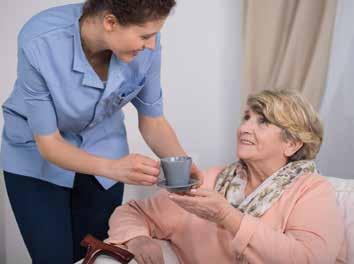
and concerns, regain skills and give you the confidence you need to get involved in your community.
If you feel you would benefit from a weekly chat over a cup of tea or on the phone, or you would like someone to accompany you to an activity, we will match you with someone who has similar interests to yours.
If you are over 50 and a resident from Liverpool or Sefton - we can help and support you.
Trusted traders and partners: If you have jobs around the home that need doing, need to make accessibility adjustments or require home care aids to help you continue to live safely and independently, we can make recommendations from our trusted traders register and partners.
Financial and legal support: Our trusted partners can help you with a range of legal services including power of attorney, equity release and financial advice.
Friendship and support: We provide excellent support in your home to help you tackle any issues
Community Activities: We run a monthly programme of activities to keep you active both mentally and physically, helping you reengage with people.
We understand and we’re here to help.
For further information about all of our services please call 0151 330 5678
Lines are open 10am-3pm, Monday – Friday
www.ageconcernliverpoolandsefton.org.uk
Editorial content supplied by: Age Concern Liverpool & Sefton 15

Sefton social care and wellbeing
Most people want to live independently in their own homes for as long as possible.
We encourage you to take care of your long term health and wellbeing by supporting and signposting you to a range of activities and events in your local community. These are available through libraries, leisure centres or through the voluntary, faith and community sector. You can find full details of what is available in your local community through The Sefton Directory www.seftondirectory.com
Adult Social Care
If you think you need additional help and support to maintain your independence or are struggling to live at home then you may be entitled to help from adult social care.
Your social care assessment
An assessment means collecting information about you and your life and talking with you about the difficulties you have and how they affect your wellbeing. This helps us to understand your situation, what your needs are and how to plan for the future.
Things we will look at during your assessment:
• Who (if anyone) you would like to be involved in your assessment. If you have a carer then we will need to speak to them
• Things you enjoy doing
• Things that are important to you
• Support already available to you – what’s working well (e.g. help from family and friends, equipment and aids, paid carers)
• Anything that has worked well in the past
• If you are a carer, how your caring role affects you day to day
• What about things you do well?
• What would you like to achieve / do more of?
Who can have an assessment?
Any adult who may have needs for care and support can have an assessment.
Anyone who looks after another adult and may need help to enable them to continue to care can have a Carers Assessment.
What if I don't want an assessment?
You can refuse to have an assessment but we may still need to talk to you if we are concerned about your safety and wellbeing.
Any adult who may have needs for care and support can have an assessment.
• What you are finding difficult and how this is affecting you in your daily life
• Your daily routine and how you manage
• Your health and how it affects you, including medication, recent visits or contact with GP or hospital
• Looking after yourself (e.g. washing, dressing, meals, shopping, managing your home and finances)
We can still give you information and advice about arranging your own support and accessing activities and groups in your community. If you are offered an assessment but refuse this time, you could still change your mind at a later date.
Carers Support
You are a carer if you provide regular and substantial unpaid help to someone who is frail or disabled, or mentally or physically ill, and who cannot manage
Editorial content supplied by: Sefton Council
16
Public Health teams work to help people in Sefton to be healthy and happier.
without your support. You may not live in the same house, and you do not have to be related to the person you look after.
Carers are now able to have an assessment. The local authority will assess whether the carer has needs and what those needs may be. This assessment will consider the impact of caring on the carer.
Anyone wanting help, advice or assistance completing the carers needs assessment should contact Sefton Carers Centre on 0151 288 6060
Find out more here: www.sefton.gov.uk/socialcare/care-and-support-for-adults
Living Well Sefton
Public Health teams work to help people in Sefton to be healthy and happier. It's something you can do regardless of your age or your circumstances and it’s our job to help you.
There are parks, healthy places and a long coastline for you to enjoy. If you want to be healthier we can help you with information about how and where you can do it. If you want to start click www. livingwellsefton.org.uk or ring 0300 323 0181
Living Well Sefton is a FREE service with a focus on supporting people with issues that may be affecting their health and wellbeing. It is collaboration of various Sefton organisations which have the expertise and knowledge to share with you.
As part of the service, there are a number of Living Well Mentors to talk to and they work with you on a one-to-one basis to identify health areas to see where small tweaks can be made but may have a big impact on improving your health.
What
Living Well
Sefton can offer Physical Activity – Research shows that physical activity can also boost self-esteem, mood, sleep quality and energy, as well as reducing your risk of stress, depression, dementia and Alzheimer’s disease. That is where we can help. Our partners offer sessions, workshops and activities you can join which will not only burn calories they make you feel better because you are meeting different people and being active. From walking groups, walking football and a Steps to Health programme As well as this, our Living Well Mentors can provide in-depth support by working out how physically active you want to be and tailoring a plan just for you.
Stop Smoking - It has been recognised for some time that stopping smoking is the single best thing anyone can do to improve their health because smoking is the biggest cause of preventable death and disease in the country. Smoke free Sefton is an established, nurse-led stop smoking service which can help anyone wanting to quit cigarettes. People are up to four times more likely to stop with this kind of support and they can be reached via our service. Alternatively, the stop smoking team have clinics throughout the borough at different times to be as flexible as possible.

Alcohol - Many people may not realise the amount they drink could be having an adverse affect on their health.
Weight Management - Managing your weight should be done in tandem with regular physical exercise, eating a healthy diet and watching how much you drink. Our Living Well Mentors can help you set goals and give details of other ways you can manage your weight such as joining one of their healthy cooking or weight management courses
Mental Wellbeing - Our partners offer a variety of programmes, services and activities to give your wellbeing a boost. They range from: benefits and debt advice, luncheon clubs to provide a place to meet as well as eat, a film club, gardening groups, confidence and assertiveness courses and learn skills to cope with life’s stresses. Think Differently, Cope Differently is a five-week course our partners deliver and it is designed to increase your wellbeing by improving positive thinking, eating more healthy, learning relaxation skills and other ways of coping.
Reporting an adult safeguarding concern
Safeguarding is work that helps vulnerable adults to keep their independence, wellbeing and choice and to live a life free from abuse, including neglect. It is important to understand that Safeguarding is everyone's responsibility, including yours. We all have a role to play in preventing abuse. If you see something, report it as quickly as possible to stop it getting worse.
Are you concerned about adult abuse?
• Do you think a vulnerable adult is being harmed or is at risk of being harmed by someone else or is neglecting themself?
• Are you worried that a vulnerable adult is living in circumstances (at home or in care) where they are being treated badly or neglected?
If you've answered yes to either of these questions, then please call 0345 140 0845 to report your concerns. Don't worry if you are not sure. All reports will be looked into and no action will be taken unless it is needed.
Editorial content supplied by: Sefton Council
17
NHS healthcarecontinuing
Some people with long-term complex health needs qualify for free social care arranged and funded solely by the NHS. This is known as NHS continuing healthcare.
Where can NHS continuing healthcare be provided?
NHS continuing healthcare can be provided in a variety of settings outside hospital, such as in your own home or in a care home.
Am I eligible for NHS continuing healthcare?
NHS continuing healthcare is for adults. Children and young people may receive a “continuing care package” if they have needs arising from disability, accident or illness that cannot be met by existing universal or specialist services alone.
Find out more about the children and young people’s continuing care national framework on GOV.UK
You should be fully involved in the assessment process and kept informed, and have your views about your needs and support taken into account. Carers and family members should also be consulted where appropriate.
A decision about eligibility for a full assessment for NHS continuing healthcare should usually be made within 28 days of an initial assessment or request for a full assessment.
If you are not eligible for NHS continuing healthcare, you can be referred to your local council who can discuss with you whether you may be eligible for support from them.
If you still have some health needs then the NHS may pay for part of the package of support. This is sometimes known as a “joint package” of care.
Your eligibility for NHS continuing healthcare depends on your assessed needs, and not on any particular diagnosis or condition.
To be eligible for NHS continuing healthcare, you must be assessed by a team of healthcare professionals (a multidisciplinary team). The team will look at all your care needs and relate them to:
• what help you need
• how complex your needs are
• how intense your needs can be
• how unpredictable they are, including any risks to your health if the right care is not provided at the right time
Your eligibility for NHS continuing healthcare depends on your assessed needs, and not on any particular diagnosis or condition. If your needs change then your eligibility for NHS continuing healthcare may change.

Information and advice
The process involved in NHS continuing healthcare assessments can be complex. An organisation called Beacon gives free independent advice on NHS continuing healthcare.
Visit the Beacon website or call the free helpline on 0345 548 0300.
Editorial content supplied by: the NHS
18

NHS continuing healthcare assessments
Integrated care boards, known as ICBs (the NHS organisations that commission local health services), must assess you for NHS continuing healthcare if it seems that you may need it.
For most people, there’s an initial checklist assessment, which is used to decide if you need a full assessment. However, if you need care urgently – for example, if you’re terminally ill – your assessment may be fast-tracked.
Being referred for a full assessment does not necessarily mean you’ll be eligible for NHS continuing healthcare. The purpose of the checklist is to enable anyone who might be eligible to have the opportunity for a full assessment.
The professional(s) completing the checklist should record in writing the reasons for their decision, and sign and date it. You should be given a copy of the completed checklist.
For most people, there’s an initial checklist assessment, which is used to decide if you need a full assessment.
Initial assessment for NHS continuing healthcare
The initial checklist assessment can be completed by a nurse, doctor, other healthcare professional or social worker. You should be told that you’re being assessed, and what the assessment involves.
Depending on the outcome of the checklist, you’ll either be told that you do not meet the criteria for a full assessment of NHS continuing healthcare and are therefore not eligible, or you’ll be referred for a full assessment of eligibility.
You can download a blank copy of the NHS continuing healthcare checklist from GOV.UK
Full assessment for NHS continuing healthcare
Full assessments for NHS continuing healthcare are undertaken by a multidisciplinary team (MDT) made up of a minimum of 2 professionals from different healthcare professions. The MDT should usually include both health and social care professionals who are already involved in your care.
You should be informed who is co-ordinating the NHS continuing healthcare assessment.
Editorial content supplied by: the NHS
19

The team’s assessment will consider your needs under the following headings:
• breathing
• nutrition (food and drink)
• continence
• skin (including wounds and ulcers)
• mobility
• communication
• psychological and emotional needs
• cognition (understanding)
• behaviour
• drug therapies and medicine
If you’re eligible for NHS continuing healthcare, the next stage is to arrange a care and support package that meets your assessed needs.
• altered states of consciousness
• other significant care needs
These needs are given a weighting marked “priority”, “severe”, “high”, “moderate”, “low” or “no needs”.
If you have at least 1 priority need, or severe needs in at least 2 areas, you can usually expect to be eligible for NHS continuing healthcare.
You may also be eligible if you have a severe need in 1 area plus a number of other needs, or a number of high or moderate needs, depending on their nature, intensity, complexity or unpredictability.
In all cases, the overall need, and interactions between needs, will be taken into account, together with evidence from risk assessments, in deciding whether NHS continuing healthcare should be provided.
The assessment should take into account your views and the views of any carers you have. You should be given a copy of the decision documents, along with clear reasons for the decision.
You can download a blank copy of the NHS continuing healthcare decision support tool from GOV.UK
Fast-track assessment for NHS continuing healthcare
If your health is deteriorating quickly and you’re nearing the end of your life, you should be considered for the NHS continuing healthcare fast-track pathway, so that an appropriate care and support package can be put in place as soon as possible – usually within 48 hours.
Care and support planning
If you’re eligible for NHS continuing healthcare, the next stage is to arrange a care and support package that meets your assessed needs.
Depending on your situation, different options could be suitable, including support in your own home and the option of a personal health budget.
If it’s agreed that a care home is the best option for you, there could be more than 1 local care home that’s suitable.
Your ICB should work collaboratively with you and consider your views when agreeing your care and support package and the setting where it will be provided. However, they can also take other factors into account, such as the cost and value for money of different options.
Editorial content supplied by: the NHS
20
If your needs have changed, the review will also consider whether you’re still eligible for NHS continuing healthcare.
NHS continuing healthcare reviews
If you’re eligible for NHS continuing healthcare, your needs and support package will normally be reviewed within 3 months and thereafter at least annually. This review will consider whether your existing care and support package meets your assessed needs. If your needs have changed, the review will also consider whether you’re still eligible for NHS continuing healthcare.
Refunds for delays in NHS continuing healthcare funding
ICBs will normally make a decision about eligibility for NHS continuing healthcare within 28 days of getting a completed checklist or request for a full assessment, unless there are circumstances beyond its control.
If the ICB decides you’re eligible, but takes longer than 28 days to decide this and the delay is unjustifiable,
they should refund any care costs from the 29th day until the date of their decision.
If you’re not
eligible for NHS continuing healthcare
If you’re not eligible for NHS continuing healthcare, but you’re assessed as requiring nursing care in a care home (in other words, a care home that’s registered to provide nursing care) you’ll be eligible for NHS-funded nursing care.
This means that the NHS will pay a contribution towards the cost of your registered nursing care. NHS-funded nursing care is available irrespective of who is funding the rest of the care home fees.
Find out more about NHS continuing healthcare from NHS England.
Frequently asked questions about NHS continuing healthcare
Q
I have a local authority support package that works well. I’m now eligible for NHS continuing healthcare – will my support package change?
If you’re concerned about changes to your care package because of a move to NHS continuing healthcare, your ICB should talk to you about ways that it can give you as much choice and control as possible. This could include the use of a personal health budget, with 1 option being a “direct payment for healthcare”.
Q
Can I refuse an assessment for NHS continuing healthcare? If I refuse, will I be able to get services from my local authority?
Consent is not needed for completion of assessments (CHC Checklists, Decision Support Tools (inclusive of FNC by default) and Fast Track), or collation and sharing of information with:
• Care Teams
• Health and Social Care Staff
But consent is needed to share personal information collected for, and as part of, assessments (Checklist, Decision Support Tool (inclusive of FNC by default) and Fast Track) with third parties, such as family, friends or representatives, at the beginning of the process. There is a legal limit to the types of services that a Local Authority can provide. If you have any concerns about being assessed for NHS continuing healthcare, the ICB should explore your reasons for this, and try to address your concerns.
If someone lacks the mental capacity to consent to sharing of information with third parties (other than Care Teams or Health and Social Care Staff), the principles of the Mental Capacity Act will apply and a best interests decision may be needed.
Q
My relative is in a care home and has become eligible for NHS continuing healthcare. The ICB says the fees charged by this care home are more than they would usually pay, and has proposed a move to a different care home. I think a move will have a negative effect on my relative. What can we do?
If there’s evidence that a move is likely to have a detrimental effect on your relative’s health or wellbeing, discuss this with the ICB. It will take your concerns into account when considering the most appropriate arrangements.
If the ICB decides to arrange an alternative placement, they should provide a reasonable choice of homes.
Q Is it possible to pay top-up fees for NHS continuing healthcare?
No, it is not possible to top up NHS continuing healthcare packages, like you can with local authority care packages.
The only way that NHS continuing healthcare packages can be topped up privately is if you pay for additional private services on top of the services you’re assessed as needing from the NHS. These private services should be provided by different staff and preferably in a different setting.
FAQ’s Editorial content supplied by: the NHS
21

Please support us
Age Concern Liverpool and Sefton - a name you can trust
Age Concern Liverpool & Sefton provides essential services and activities for older, vulnerable adults age 50+. We couldn't do that without the support of the local community, volunteers and fabulous fundraisers. We need your help to raise money through fundraising and donations to ensure we can continue to offer this free support locally.
There’s so many ways you can help:
• Make a donation
• Take part in a fundraising challenge
• Do your own fundraising for us
• Volunteer with us
• Leave a legacy
• Sign up to our monthly lottery
• Buy your financial products or stair lifts through our charity.
Taking part in one of our organised events, playing our Lottery, taking on a personal challenge or putting on your own event - like a coffee morning, a quiz night or holding a fundraiser at work or school, can help make a difference to the lives of older adults locally!
£10 helps us answer calls from some of the most vulnerable older people in our community who are feeling isolated and lonely.

£20 helps us reach out to older people to get the support they need be it companionship, equipment or access to free activities in the community.
£50 helps us to influence and develop services for older people locally.
Please get in touch
We’d love you to join our friendly supporters! For information;
Email: mail@ageconcernliverpoolandsefton.org.uk
Call: 0151 330 5678 / 07774 751 437
Visit: www.ageconcernliverpoolandsefton.org.uk/ support-us/
You can make a donation HERE:
We’d love you to join our friendly supporters!




Editorial content supplied by: Age Concern Liverpool & Sefton
Age Concern Liverpool & Sefton is a Registered Charity No. 517902 and a Company Limited by Guarantee registered in England and Wales No. 2002499
22
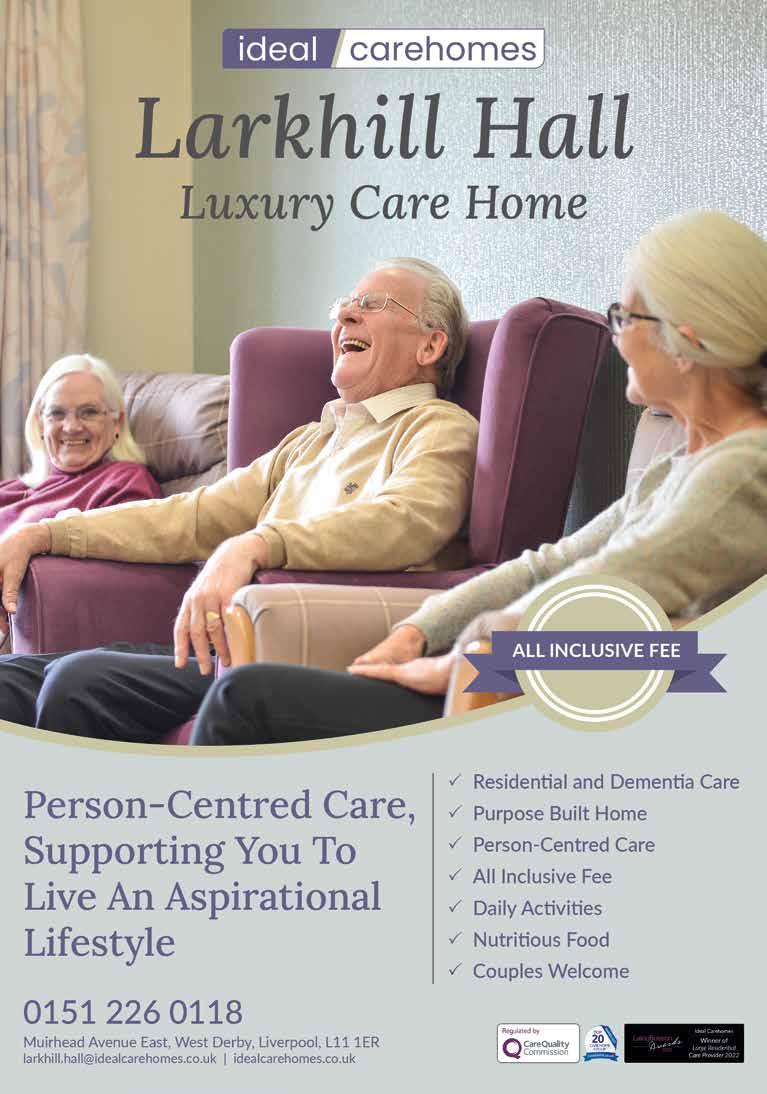
My mum has been at Damfield Gardens for 18 months. Although we wished she could stay at home, unfortunately, she needed 24-hour care and we looked to find the best place we could for her. At Damfield Gardens, she has been looked after reallywell. The staff and carers are very pleasant and friendly and happy to answer any questions we might have, they serve home cooked excellent food and encourage her to take part in activities. My mum always had her hair done once a week at the hairdressers and she has been able to carry on with this as they have a salon on site with a hairdresser coming in twice a week. She always liked to look nice and this has helped keep her morale up along with looking at and walking around the garden with staff and visitors. P Edmonds (Daughter of resident), October 2022
Set in 10 acres of picturesque parkland, Damfield Gardens is a 67 bed residential care home which provides both residential and dementia care over three floors, offering luxury living and incorporating the highest standards of care with exceptional design and the latest innovations.
Being a family business, Highpoint Care whole-heartedly understands and empathises with the difficult decisions families have to make when considering care for their loved ones and we make it our absolute priority to ensure each of our residents receive quality care tailored to you.
It is because of this priority that Highpoint Care offers all our residents purpose built homes, which boast luxurious and homely settings, as well as offer a fresh environment with high-quality furnishings throughout, all of which are surrounded by stunning landscape scenery which residents can explore.
Everything we do is centred around providing the very best and highest standards of care tailored to each resident’s individual needs. Where needed we also offer additional support via our fully integrated primary care partners for those suffering with a range of mental, physical and degenerative illnesses such as Dementia and Alzheimer’s.
Please enquire about a resident admission or a job vacancy by ringing 0151 526 8685 or email damfield.admin@highpointcare.co.uk


Damfield Gardens Care Home
1 Bournehurst Drive, Off Damfield Lane, Maghull, Liverpool L31 3FA Telephone No: 0151 526 8685 • Fax No: 0151 527 3577
Email: damfield.admin@highpointcare.co.uk • www.highpointcare.co.uk


Afton Lodge
Residential Care Home
❖
❖
❖
❖
❖
❖
❖
9-15
Email:
Facebook:
Afton Lodge is a tastefully converted property, providing residential care for the elderly. It provides a homely environment and features a TV lounge and a quiet lounge. There is also an extensive walled garden and patio area with full disabled access.
The home welcomes Service Users funded by Social Services and those who are privately paying clients. This home is inspected and
❖
❖
❖
❖
❖
❖
❖
❖
❖
❖
❖
accredited by CQC, in accordance with statutory government regulation and has Investors in People Award.
Our dedicated staff are headed by a Registered Manager, who has many years of experience in caring for the elderly. Our manager provides hands-on supervision to maintain our tradition of excellence. All Staff are DBS checked and
❖
❖
❖
❖
❖
❖
❖
trained to an appropriate level, many with NVQ qualifications.
Accommodation is fully inclusive of laundry. Our trained chefs prepare a wide range of home cooked food using fresh local produce. The choice is based on traditional recipes and daily alternatives are provided at every meal time. Special diets are also catered for.
❖
❖

Accommodation
❖
❖
❖ Double rooms also available
❖ TV in rooms
❖ Internet facility available


Designed by: Octagon Design & Marketing Ltd, Rossington Hall, Great North Road, Doncaster, South Yorkshire DN11 0HR. Tel: 01302 714528 Email: info@octagon.org.uk
St Catherines Road, Bootle, Liverpool L20 7AL Tel: 0151 922 6183
aftonlodge@regency.care Website: www.regency.care
www.facebook.com/rhcltd Twitter: @Regency_HC Services we offer
Residential and personal care
❖
Dementia
Short and long stay care
Day care
Intermediate care
Re-ablement care
End of life / palliative care
Cohort beds for hospitals Support and facilities
Personal healthcare
Activities
Dining and accommodation
Laundry service
❖
Disabled / wheelchair access
Lifts to all floors
Specialised equipment available for assisted bathing etc.
Car parking available
Special diets available
and personal care
Health
GP services available on request
Chiropody visits on a regular basis
Hairdresser visits
Optician and dentists by arrangement Leisure activities
Newspapers and music
Pop quiz
Shopping trips and hairdressing
Karaoke
Bingo and skittles
Cheese and wine tasting
Dominoes
Social events
Nurse call in every room
Rooms decorated to
high
a
standard




















































